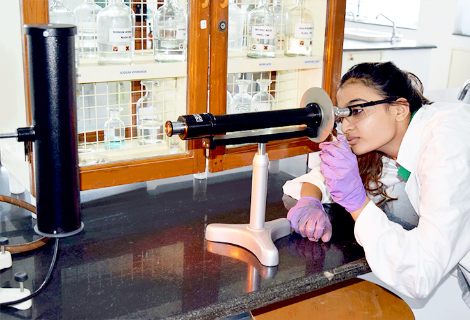HIGH School
IGCSE
IBDP
AS/A LEVELS
IGCSE
CAMBRIDGE INTERNATIONAL GENERAL CERTIFICATE OF SECONDARY EDUCATION (IGCSE)
IGCSE was developed by Cambridge Assessment International Education (CAIE) in 1988, and today, it’s the world’s most popular international qualification for 14 to 16 year olds.
The focus of the Cambridge IGCSE curriculum is to offer varied options to learners with different types of abilities, including students whose first language is not English. It is a comprehensive and stimulating programme offering a wide range of subjects with a balanced mix of theoretical knowledge and practical experience. It is the perfect springboard to advanced study.
Curriculum
The IGCSE approach to teaching is to introduce the students to a variety of subjects and encourage them to make connections between them. Cambridge IGCSE develops learner knowledge, understanding and skills in:
- Subject content
- Applying knowledge and understanding to new as well as familiar situations
- Intellectual enquiry
- Flexibility and responsiveness to change
- Working and communicating in English
- Influencing outcomes
- Cultural awareness
For schools, Cambridge IGCSE offers a flexible and stimulating curriculum, supported with excellent resources and training.
Subject Groups offered by IGCSE Program
The syllabuses offered for IGCSE are designed to help develop an international outlook while retaining a local relevance. Starting from a foundation of core subjects, the students can also select a variety of other subjects ranging from Music to Computer Science to Environmental Management, which are organised under five subject groups.
The subject groups are as follows:
- Languages
- Humanities and Social Sciences
- Sciences
- Mathematics
- Creative, Technical & Vocational
The IGCSE curriculum allows the students to take a minimum of 5 and maximum of 14 subjects. It is a comprehensive two year programme for Grades 9 and 10. Students take an internal school exam at the end of Grade 9 and the IGCSE Board exam at the end of Grade 10.
At BIS, all students are encouraged to take 8 subjects to ensure a broad and balanced programme of study. However, we also make certain exemptions for students based on their individual needs.
Assessment
Cambridge IGCSE assessment takes place at the end of the course and can include written, oral, coursework and practical assessment. This broadens opportunities for students to demonstrate their learning, particularly when their first language is not English. In many subjects there is a choice between core and extended curricula, making Cambridge IGCSE suitable for a wide range of abilities.
Grades are benchmarked using eight internationally recognised grades, A* to G, which have clear guidelines to explain the standard of achievement for each grade.
Cambridge ICE
Cambridge ICE is a group award for Cambridge IGCSE, which allows schools to offer a broad and balanced curriculum by recognising the achievements of learners who pass examinations in at least seven Cambridge IGCSE subjects from five different subject groups, including two different languages.
Cambridge ICE curriculum
The Cambridge IGCSE subjects are grouped into five curriculum areas:
- Group I: Languages
- Group II: Humanities and Social Sciences
- Group III: Sciences
- Group IV: Mathematics
- Group V: Creative and Professional
Learners must take two different languages from Group I, and one subject from each of Groups II, III, IV and V. The seventh subject can be taken from any of the five subject groups.
For more information about Cambridge IGCSE, please visit cambridgeinternational.org


